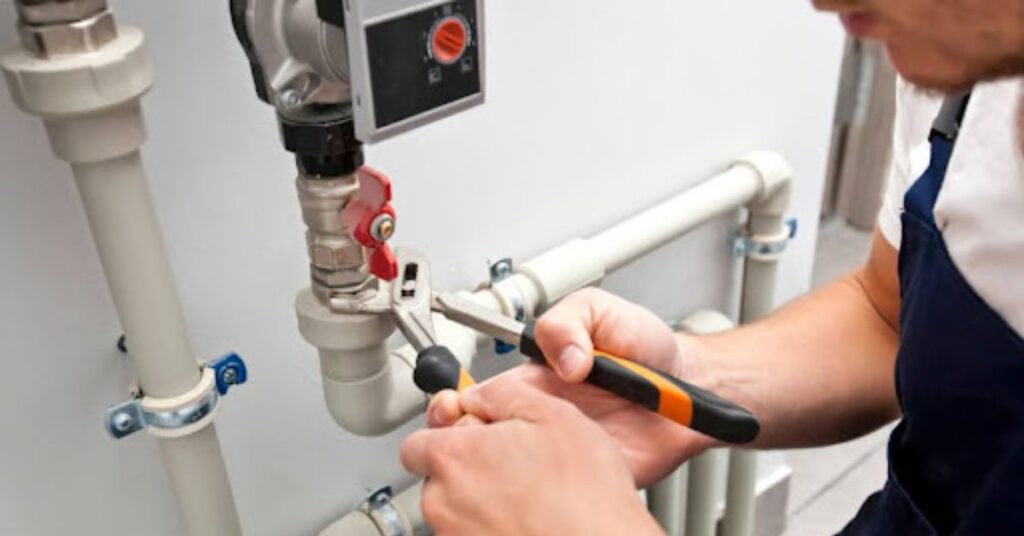Gas lines deliver essential energy for everyday heating, cooking, and more. When gas lines leak or get damaged, they can escalate into safety hazards faster than you might think.
As your trusted specialist in gas line repair in Post Falls, ID, we advocate prevention as the first step toward protecting your home. Here, we discuss the common causes of line damage and why handling them promptly matters.
Why Do Gas Lines Get Damaged?
Gas lines are designed to endure. However, time, nature, and human activities can wear them down or cause accidents. Here are some of the most common reasons:
- Aging Systems
Older gas lines, especially those made from steel or iron, can corrode or weaken over the years. Rust eats away at the metal, making it brittle and more likely to fail. Homes built decades ago may still have these outdated systems, creating hidden risks.
- Ground Movement
The ground beneath your home is constantly shifting. Soil settles, temperatures cause expansion and contraction, and, in some areas, earthquakes create stress points in buried gas lines. Even minor shifts can lead to cracks or joint separations.
- Nearby Tree Roots
Roots are surprisingly aggressive. Over time, they can wrap around buried pipes or grow into them, causing blockages or ruptures. Trees planted too close to gas lines become a slow-moving threat homeowners often overlook.
- Human Activity
Construction mishaps and DIY projects are frequent culprits. Digging without knowing where your gas lines run is a recipe for disaster. Striking a line can result in an immediate leak, endangering everyone nearby.
What Causes Gas Leaks?
Gas leaks happen for several reasons, some obvious, others less so. Here’s a closer look:
- Poorly Maintained Appliances
Gas leak repair can help secure connections to the supply line. Over time, fittings can loosen, valves wear down, or hoses develop cracks. Small problems at these points often snowball into leaks.
- Extreme Weather
Flooding, freezing temperatures, or powerful winds can all damage exposed or underground pipes. These natural events add stress, weaken materials, or create conditions where pipes break down faster.
- Manufacturing Defects
Although rare, flaws in the materials or installation of a gas line can cause leaks. Without timely gas leak detection, a small defect might go unnoticed during construction, only to show up years later.
Signs of a Gas Leak You Can’t Ignore
Gas leaks don’t always announce themselves loudly. Subtle clues can save lives if you’re paying attention.
- The smell of rotten eggs: Gas companies add a sulfur-like odor to alert you to leaks. If you notice it, don’t ignore it.
- Unusual hissing sounds: A faint hiss near a pipe or appliance often signals escaping gas.
- Dying vegetation: Dead grass or plants above buried gas lines could mean a leak below.
- Health symptoms: Headaches, nausea, or dizziness in your home might point to low-level gas exposure.
When in doubt, evacuate and call for help. It’s better to act early than take risks.
Why DIY Isn’t the Answer
Fixing a gas leak is not a project for amateurs. Even minor mistakes can have major consequences. Improper repairs may lead to explosions, lingering leaks, or future safety risks. Working on gas lines also requires knowledge of local codes and permits, which professionals from a reputable plumbing company are trained to handle.
Attempting a DIY repair can void your insurance coverage, leaving you liable for damages. A certified technician brings the expertise and tools to handle the situation safely.
Preventing Gas Line Damage
Prevention starts with awareness. Taking small steps today can save you from costly repairs or dangerous incidents tomorrow.
- Call before you dig: Always contact your utility company before starting any landscaping or construction project. They’ll mark underground lines for free.
- Schedule inspections: Professional assessments can identify weak points or corrosion in older systems before they become problems.
- Maintain appliances: Regularly check gas-powered appliances and replace worn-out parts. Addressing small issues early makes a big difference.
- Be mindful of tree placement: Plan landscaping carefully. Keep large trees far from underground gas lines to avoid root interference.
The Value of Professional Help
Gas line safety isn’t a guessing game. Licensed professionals have the training and equipment to conduct a gas line installation accurately. They can also diagnose and fix problems quickly and correctly.
When hiring, ask about their certifications, insurance, and experience with gas line repairs. A good technician will also provide advice on keeping your system in top condition.
Gas lines play an invaluable role in your home’s safety and comfort. Staying proactive about maintenance, addressing issues promptly, and relying on qualified professionals can make all the difference. Don’t leave safety to chance—invest in knowledge and take action today.







